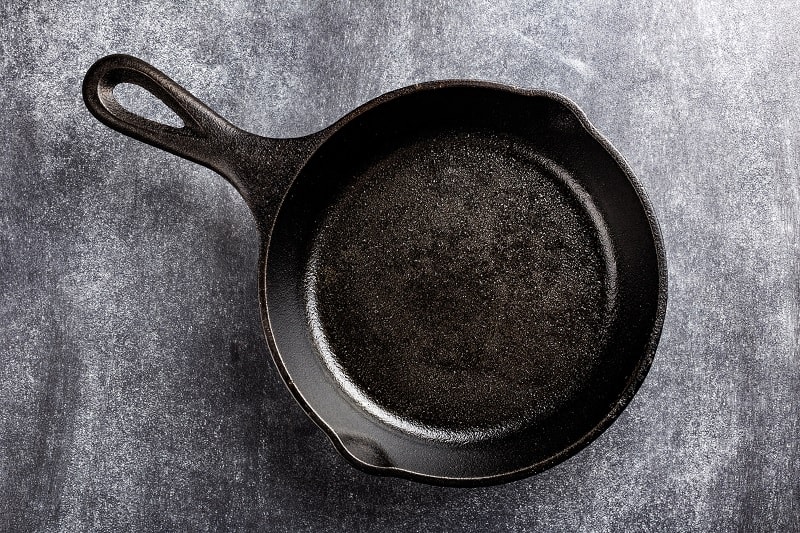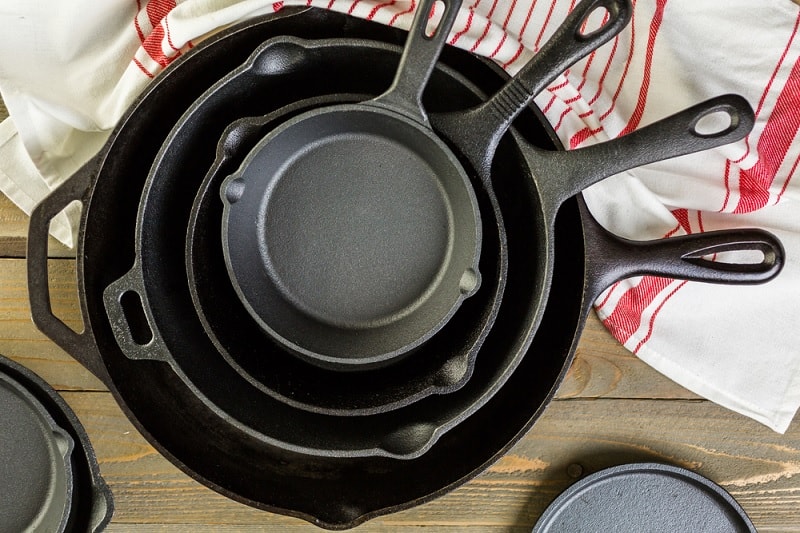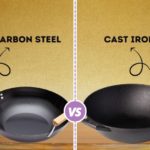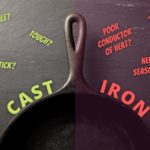PFOA stands for perfluorooctanoic acid and is a chemical used in the production of non-stick Teflon pans.
This chemical is released from the coating during cooking and can be transferred into the food we eat.
In 2004, it was found that ingesting this compound carries a risk to human health and a lawsuit was launched against Teflon manufacturer DuPont.
Since the lawsuit, PFOA has largely been phased out of cookware but many pans still contain this toxic compound or other harmful non-stick chemicals.
One of the most popular kitchen cookware options is cast iron pans. But is cast iron PFOA-free?
In this article, we reveal all and list the best PFOA-free pots and pans for a safe home kitchen.
Is Cast Iron PFOA-Free?
Cast iron does not have a Teflon coating and is as a PFOA-free cookware option. These pans are made from mainly iron with 2% to 3.5% carbon.
Together these compounds create a material which has a natural non-stick quality. As such, no PFOA or other non-stick chemicals are used in production. They make a great safe alternative to Teflon pans and other chemically non-stick cookware options.
The natural non-stick properties also carry other benefits. For one, the non-stick qualities will not deteriorate over time as this is an intrinsic property of the metal.
You also can use far less oil when cooking in cast iron pans. This is great for health, as consuming an excess of oil can cause health issues including weight gain, diabetes, heart conditions, stroke, and digestive discomfort.
What Other PFOA-Free Cookware Options Are Available?
Cast iron pots and pans are an incredible PFOA-free option for your kitchen. They’re durable, incredibly versatile, and 100% natural. However, they are far from the only option.
Other great non-toxic cookware options include all the following options.
1. Stainless steel
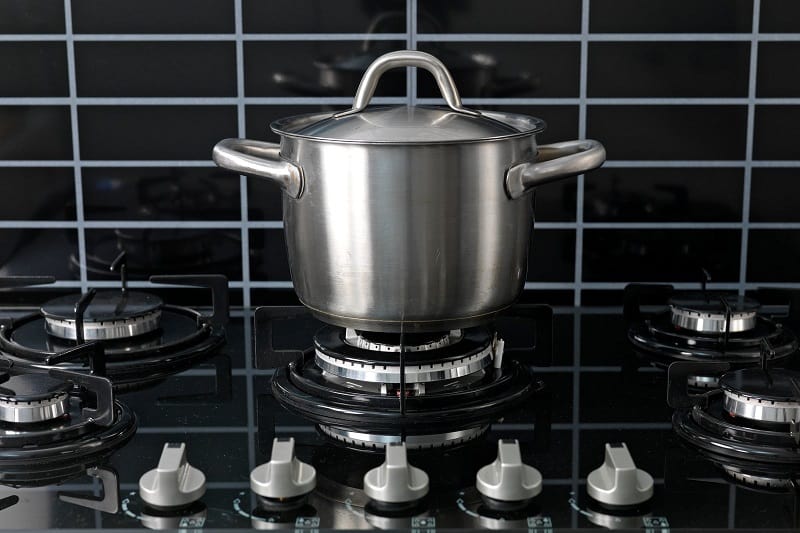
Stainless steel pans are usually made from a combination of iron, carbon, and chromium.
Unlike cast iron skillets, these pans don’t have natural non-stick properties.
However, they are still uncoated and do not contain PFOA or any other toxic chemicals. They are great for browning ingredients and have a non-reactive finish.
The thing to note with stainless steel pans is that low-grade metals can leach nickel into your food. Nickel is harmful when ingested and some people are allergic to it, so always check the grade of the pans before purchasing. All steel cookware should be made from 304 stainless steel (18/10 or 18/8).
You can buy stainless steel pans that are very resistant to leaching, but they are more expensive.
2. Ceramic cookware
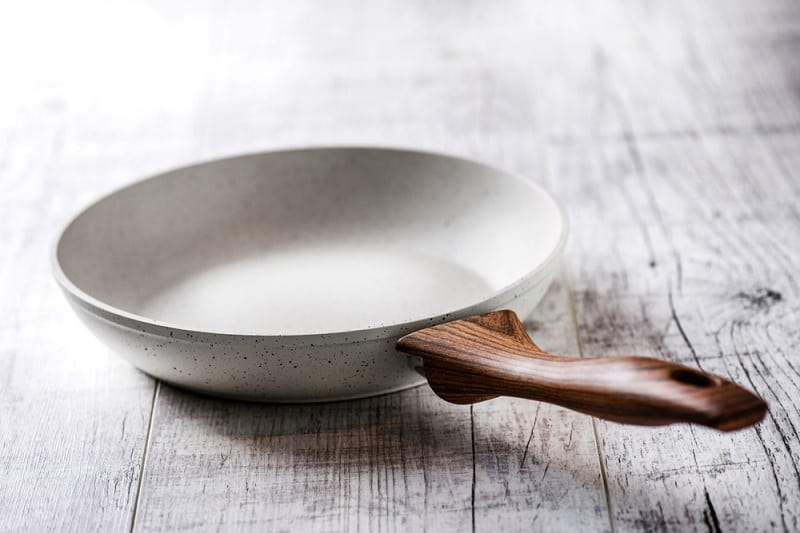
Ceramic cookware is another good PFOA-free option for your kitchen. Made from natural clay, ceramic is an extremely safe material that doesn’t leach anything into the food you are cooking. This includes chemicals, metal ions, or anything else!
However, try to get 100% ceramic cookware rather than ceramic-coated cookware. Coated ceramic cookware is made from metal coated in a thin layer of ceramic.
Depending on the manufacturers, PFOA may be used to bind this ceramic layer to the metal.
As the ceramic layer wears down, metals can also leach from the below layers. 100% ceramic pans, on the other hand, are very safe.
3. Carbon steel
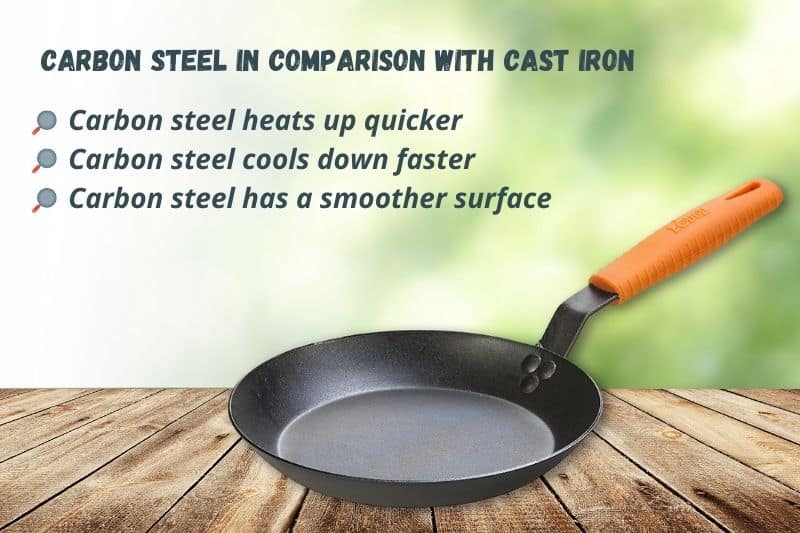
Carbon steel pans and woks are a popular non-stick option that has gained popularity in recent years. These pans are similar to cast iron pans in many ways.
Both are predominantly made of iron, have natural non-stick properties, and are PFOA-free. Yet unlike cast iron cookware which is made of 97-98% iron and 2-3% carbon, carbon steel pans are made of 99% iron and 1% carbon.
The 1-2% less carbon makes these pans more lightweight than cast iron cookware. Plus, the surface is ever smoother for enhanced non-stick properties.
Carbon steel pans also heat up more quickly and are more heat conductive than cast iron pans for more efficient cooking.

Hannah is a freelance content writer and self-proclaimed foodie. When Hannah isn’t sitting tapping at her laptop, you’ll probably find her in the kitchen. As an ex-chalet host, she’s used to cooking four-course meals for 10+ people and loves feeding friends and family whenever possible.

